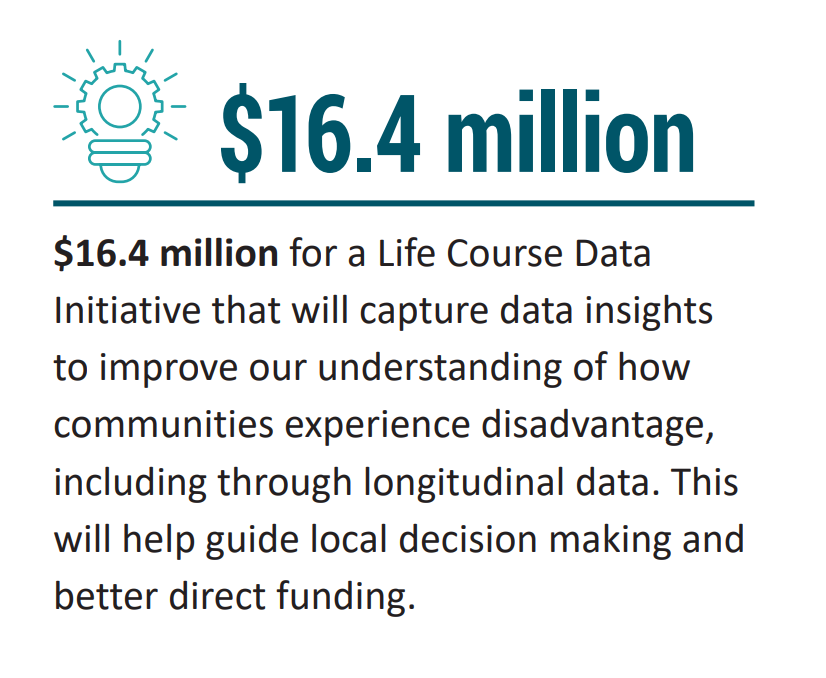Life Course Data Initiative central to Australian Government’s entrenched disadvantage package
The Life Course Centre welcomes the Australian Government’s commitment in the 2023–24 Budget to deliver $199.8 million of new investment to target entrenched community disadvantage. This new funding package has a strong focus on intergenerational disadvantage and improving child and family wellbeing and is closely aligned to the mission of our Centre.

In particular, we are very pleased to see $16.4 million within this package committed to a new ‘Life Course Data Initiative’ that will capture data insights to improve understanding of how communities experience disadvantage, including through longitudinal data. This initiative will build important new data capability and develop an integrated data asset to help guide local decision-making and better direct government funding to inform improved outcomes over the long term.
This is an exciting development that reflects the sustained research and data focus of the Life Course Centre since our establishment in 2014. To see a major policy announcement aimed at interrupting intergenerational cycles of disadvantage titled ‘Life Course Data Initiative’ is an outcome of which our Centre is very proud. It not only validates the pre-eminent standing of our life course approach to addressing disadvantage in Australia, it also highlights our impact in informing and influencing important national social policy discourse and development.
We also welcome the other initiatives within the Australian Government’s entrenched disadvantage package, including the strong focus on place-based partnerships and local community outcomes. These initiatives are aligned with our Centre’s new Places research program, which is investigating how disadvantage is experienced ‘in place’ and how local context contributes to, and can be optimised to provide pathways out of, disadvantage. The new funding package also includes an innovative Investment Dialogue for Australia’s Children to build long-term partnerships between philanthropy and government to coordinate efforts and direct funding.
This policy announcement also reflects, and builds on, our ongoing Data for Policy agenda, including targeted projects and workshops that have forged strong collaborative partnerships with government data custodians and shaped access to sensitive administrative data that was previously not utilised for research. Through our efforts, we have successfully unlocked this data to progress innovative projects that investigate the pathways of disadvantaged groups, key social determinants of disadvantage, and the critical life course points at which intervention can be most meaningful.
Our Data for Policy agenda has involved close engagement with our partners, the Department of Social Services (DSS), the Australian Institute of Health and Welfare (AIHW), and other agencies such as the Australian Bureau of Statistics, and the Office of the National Data Commissioner (ONDC). While a lot of positive progress has been made in data access and linkage, including development of the Multi-Agency Data Integration Project (MADIP) that brings together health, education, income, taxation, welfare, employment and census data over time, there are still challenges remaining and goals to be achieved.
The new ‘Life Course Data Initiative’ now provides important new funding and momentum to further progress critical data infrastructure to help interrupt intergenerational disadvantage for the benefit of all Australian children and families.